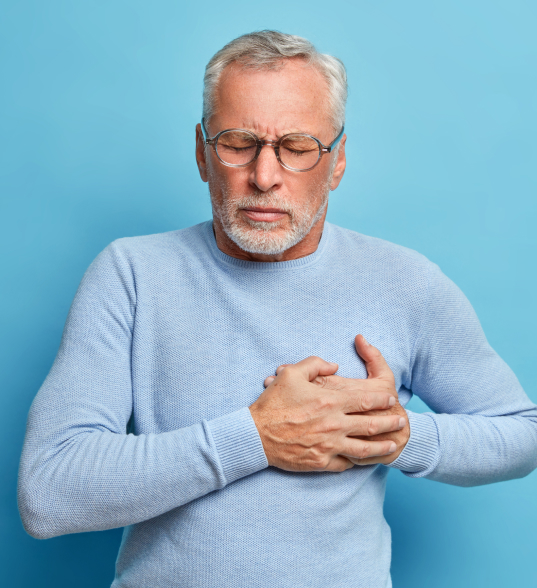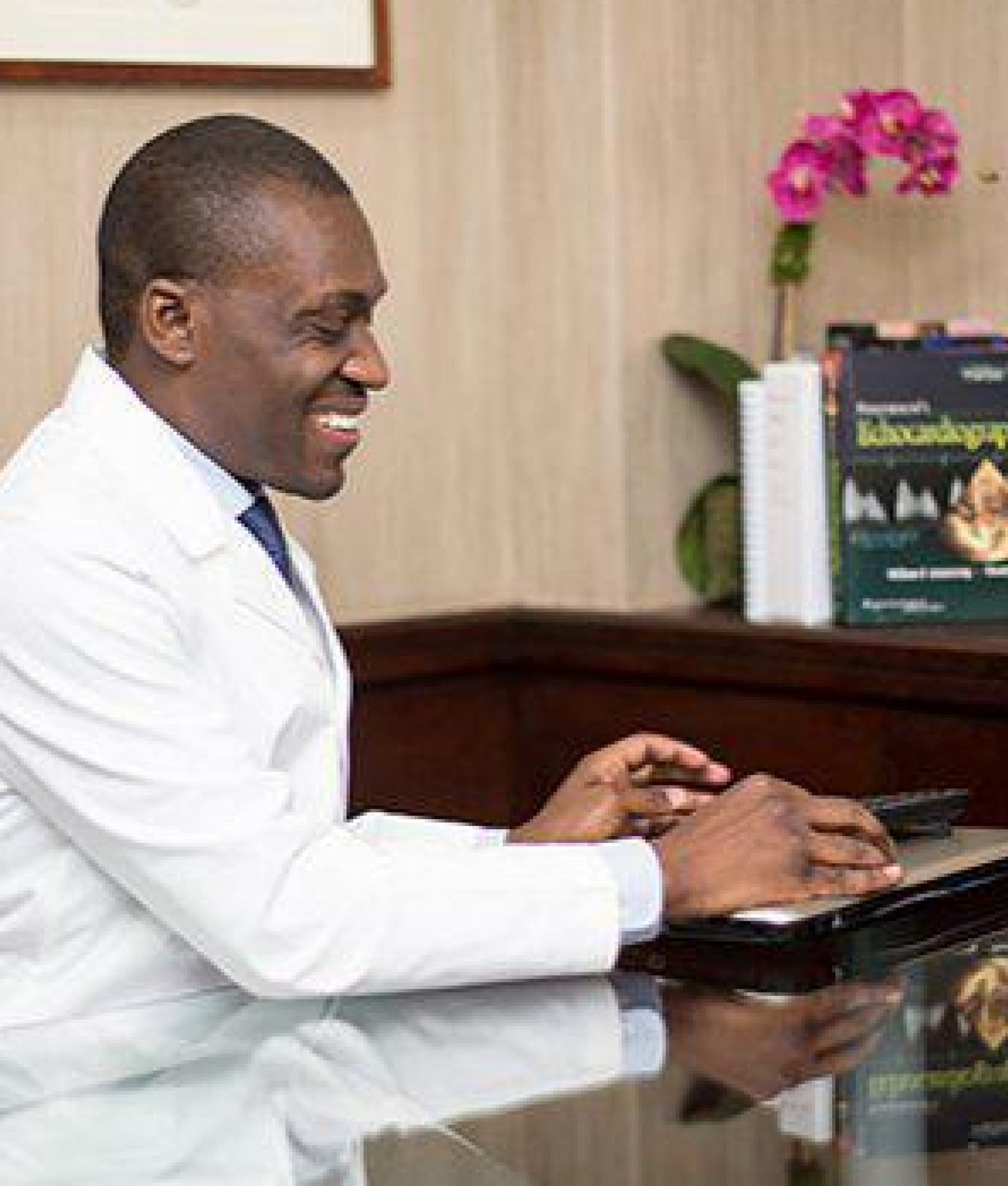Chest Pain
Chest pain appears in many forms, ranging from a sharp stab to a dull ache. Sometimes chest pain feels crushing or burning. The pain can travel up the neck, into the jaw, or down one or both arms.
Many different problems can cause chest pain. The most life-threatening causes can involve the heart and major blood vessels in the chest. Because chest pain can indicate a serious problem, it’s important to seek immediate medical help.
Angina is the term for chest pain caused by poor blood flow to the heart. This is often caused by plaque buildup inside the walls of the arteries that carry blood to your heart. These plaques narrow the arteries and restrict the heart’s blood supply, particularly during exertion.
It may feel like pressure or squeezing in your chest. The discomfort also can occur in your shoulders, arms, neck, jaw, abdomen or back. Angina pain may even feel like indigestion. In addition, some people don’t feel any pain but have other symptoms like shortness of breath, lightheadedness (dizziness) or fatigue.
*Source: American Heart Association


Chest Pain: FAQ
A heart attack, also known as a myocardial infarction, occurs when a blockage in one or more coronary arteries reduces or stops blood flow to the heart, which deprives the heart muscle of oxygen.
Most often heart attacks are associated with symptoms such as chest pain, shortness of breath, or dizziness. A heart attack can occur without any symptoms. This is called a “silent heart attack” and it is often detected on diagnostic tests on your heart.
The evaluation typically begins with an electrocardiogram (ECG/EKG). Other diagnostic tests include a stress test, echocardiogram, blood tests, cardiac CT scan and cardiac MRI. The type of test you receive will be determined by the cardiologist based on your symptoms and risk factors.
Chest pain could indicate a serious heart condition and should be addressed in a timely manner. Contact your doctor and schedule an appointment with a chest pain specialist (cardiologist). If you are experiencing a medical emergency always dial 911 for emergency medical services (EMS) and visit the nearest emergency department. Remember never attempt to drive yourself to the emergency room during a medical emergency.

Check out our
Wellness Program
We offer an exciting program to educate patients on how to best prevent cardiovascular disease from developing or worsening.
Feedback
Happy patients Happy words 😊
Dr. Abiola Dele-Michael always appreciates feedback from his valued patients. Read what others are saying about their experience with him.


